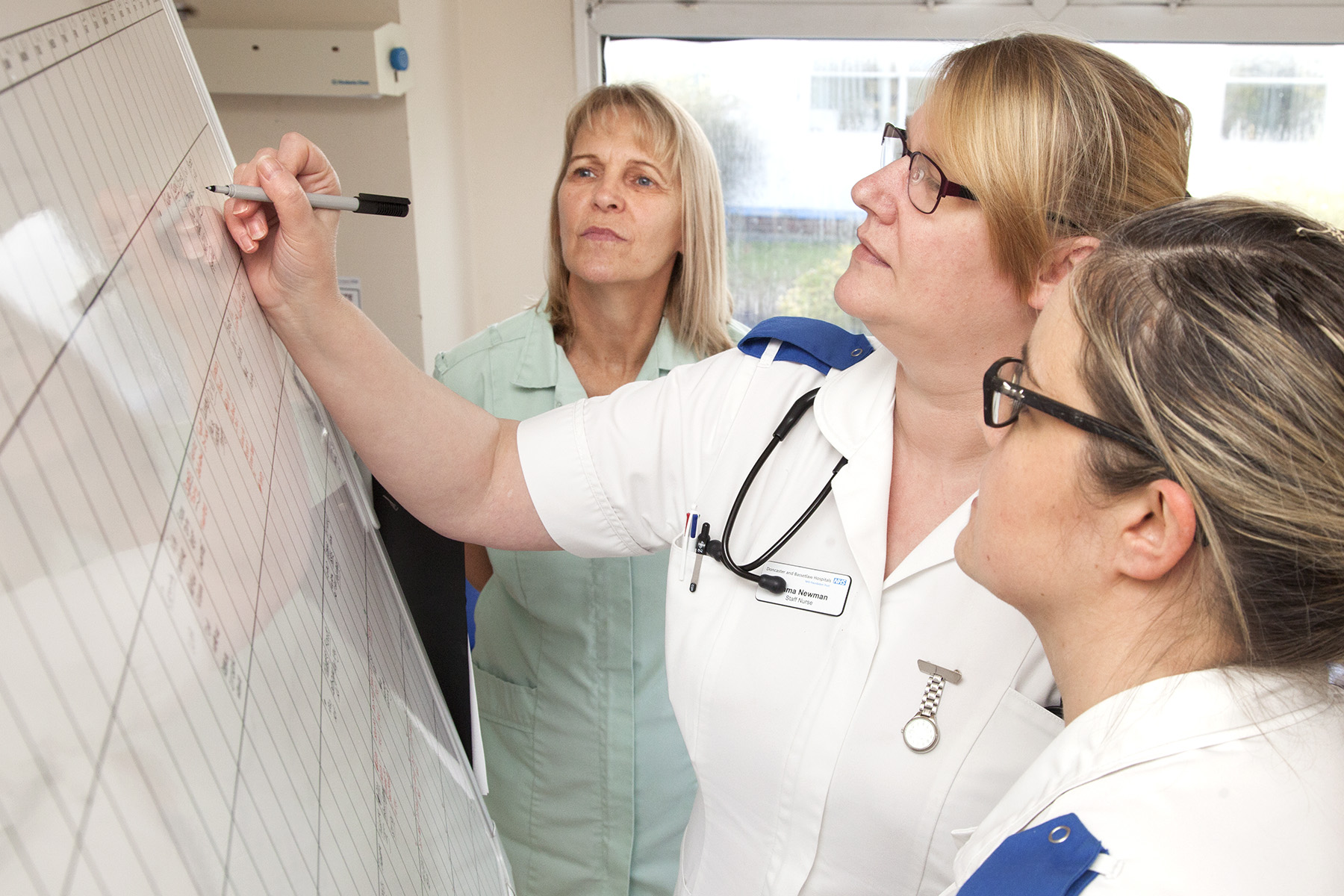Achieving Reliable Care for Safety
Share
In A Nutshell:
Achieving Reliable Care for Safety (ARCS) puts the patient and their needs at the heart of delivering good quality, safe patient care. Based on Lean principles, this evidence based intervention is used by frontline teams to bring all aspects of the patient’s plan in one place, improving the coordination of care across the multidisciplinary team.
ARCS has been designed to provide a consistent approach to the planning and delivery of care, reducing variability and demonstrating that patients get what they need when they need it. And when they don’t, the reason why.
Making the invisible, visible; each and every delay to patient care is captured, exposing myths about where inefficiencies lie. This enables the organisation to build a visual picture to aid sensitivity to operations at all levels. Teams highlight delays earlier, contributing to a culture where delays are no longer accepted as the norm.
Ultimately, through reducing delays, patients spend less time in hospital and are less likely to come to harm. On average, teams see a 20% reduction in length of stay when implementing this intervention.
How does ARCS work for frontline teams?

In a busy working environment, it is not always possible to obtain up-to-date information from other members within your team straight away. ARCS enables the team to see “at a glance” the whole patient plan and highlights where there are any delays. This empowers all multidisciplinary team members to work together to create solutions in tackling delays and respond quickly to emerging issues.
Although ARCS works best when used with every patient day-to-day, it can also be used as a diagnostic tool with teams to identify delays in patient pathways and issues which impact on patient safety. Supported by an improvement coach, teams are able to make sense of their data and respond appropriately: taking action to improve issues that are within their gift to address and escalating those that are not.
How does ARCS support improved patient flow within Organisations
Poor reliability is often accepted at all levels of an organisation and delays are normalised based on the capacity of the system to deliver rather than patient need. As a result not all failures are known, and known failures are not always reported or challenged. In the absence of hard evidence, teams make assumptions about what patients are waiting for, believing issues not within their gift to address. Likewise, organisations try to improve without fully understanding where the constraints lie in the system.
ARCS highlights inefficiencies at micro, meso and macro levels, supporting organisations and the wider healthcare system to prioritise issues and increase the effectiveness of their of their improvement efforts.
who we are working with